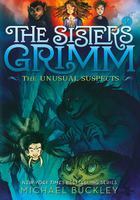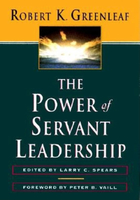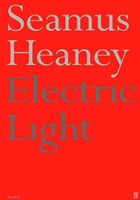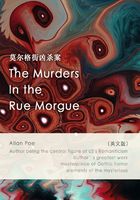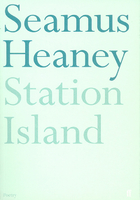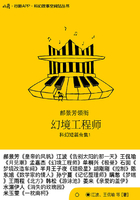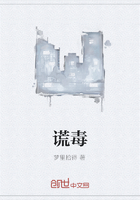Dr. Monzales has left, and Elliot is talking.
There was a silence and he had to fill it.
He's slouched on the desk chair, his long body awkwardly arranged, telling us about his plans to meet Aula the documentary filmmaker at an illegal pop-up restaurant inside a condemned Manhattan water tower. "They bring in these top chefs," he's saying.
"Elliot. Seriously. Shut up."
He stares at me. Sits up a little. Rubs a hand across his face.
And I feel bad, because what do you talk about on a night like this?
Nine and a half hours to go. And there's nothing left that I want to discuss.
"Turn on TV," I instruct the room.
Mum tenses. She glances at Dad, as though expecting him to make some kind of reasoned objection. But maybe Dad is as exhausted and out of alternatives as I am, because he only pushes me into a better position for viewing the screen.
I watch as a tiny woman in a glittering pink leotard spins on the spot. She leaps and is caught by a vaguely familiar older man wearing what looks like a matador's cape.
"You had one like that," Elliot says.
"Not quite so many sequins," I point out.
I'd be surprised he remembers, but a photo of me wearing it, one satin-shoed foot up on a barre, did once hang above the radiator in the hall. (When I was ten, I took it down myself, because I knew no one else would. I didn't throw it away. I just put it in a kitchen drawer, where it became buried by the general detritus of life.) Yeah, I used to like dancing. No, it isn't something I want to watch.
"BBC America," I say.
The channel changes, and as I kind of hoped-not a wild hope, in all honesty, because BBC America is pretty reliable on this score-a Top Gear rerun is showing. An old one, from before Jeremy Clarkson hit that producer and everything changed.
Elliot turns to me. "You complete cock."
Reflexively, Mum says, "Elliot!"
But it's not an insult. Well, Elliot doesn't mean it as one. It's a term of abuse the presenter James May is particularly fond of. He's always calling one of the others a "complete cock." Now it's a kind of in-joke between Elliot and me.
The truth is, I have zero interest in the latest cars, or boyish escapades in cars. Dad loves Top Gear. Strange, maybe, for someone who loves trees, but there you go. I grew up with it. Next to being with my family, it's the closest I can get to home here in America.
Tonight, it's one of the specials. They're driving off on the hunt for the true source of the Nile. Hammond leaps about in kidlike excitement while Clarkson bellows melodramatic instructions, and I feel myself start to relax.
I have Mum, Dad, Elliot, and Top Gear. It will no doubt seem inexplicable to any normal eighteen-year-old girl, but I can't help thinking there could be far worse ways to spend what could be the last night of my life, and certainly the last night of my life as I've known it.
Next time I wake up, it'll be to go to surgery. The time after that, it will be in someone else's body…
Before any of us signed even the initial papers, Dr. Bailey, the hospital's chief psychologist, sent a report recommending that while it would be helpful for me to learn a few fundamental facts about the donor, the procedure should be essentially anonymous.
He wrote:
Experience with face transplantation in particular suggests that detailed knowledge about the donor is detrimental to recovery. Recipients tend to focus on the dead person's identity rather than their own.
This report arrived a couple of weeks after I first met Dr. Monzales, at our home in London.
The four of us (Elliot was at a lecture) were sitting around the table in our cluttered kitchen with mugs of tea. Dad, who doesn't notice this kind of thing, gave Dr. Monzales my favorite, which features a skateboarding cat, a parrot perched on its head. The incongruousness of that mug in his hand made everything seem even more surreal. Weirder than anything I could have dreamed up.
Mum is a brain surgeon. Her specialty is implanting electrodes to treat Parkinson's disease. Before Dr. Monzales arrived, Mum told me only that she'd met him many times at conferences, he was based in Boston, he was in London for a meeting, and he might have an idea of how to help me.
"It is a radical idea," she said, after a moment. "But I really think we should hear him out."
"So perhaps you have heard my name or you have looked me up?" Dr. Monzales said. He sipped over the parrot's head. "Maybe you heard about the first human head transplant, in China?"
I nodded in answer to the second question, not the first. Of course I'd heard about it. It had been all over the internet and TV. I glanced hard at Mum. Was this his "idea" of how to help me?
"I was joint lead surgeon on the procedure," he went on. "I have left my co-surgeon to the limelight. I don't care so much for attention. I prefer to focus on the work. And some work that has not yet been made public"-he lowered his voice a little-"is my development of an alternative with colleagues at Harvard Medical School."
His gaze intense, he said, "Rosa, the animal trials we have been obliged to perform show that brain transplantation can work spectacularly well. The recovery time is long-a few months, not weeks, as there are many new nerve pathways to be created. But the main advantage for a person, compared with a full head transplant, will be the absence of major neck scarring. A typical physical appearance-the scars hidden by hair, no obvious sign of major surgery. I believe this is the way to go, especially for people in your kind of circumstance, of your kind of age. When your mother approached me, and I heard about your case, I thought, 'Yes, perhaps you will be an excellent first candidate.'"
"Are you serious?" I asked him.
"About your suitability?"
"About putting my brain into someone else's body!"
"Look at the long evolution of transplantation," he said, his palms spread. "Consider what was once so controversial but now is routine, or close. The liver, the kidneys, the lungs, the eyes, the heart, the face-and so why not the brain? I am very, deeply serious."
I looked again at Mum. She nodded. "I believe it is achievable."
Dad was sitting next to me. He put his hand over mine.
"Not that this is the major concern in your mind," Dr. Monzales went on, "but you would not need to worry about the cost. The hospital has received some very large endowments. Everyone there is eager to pioneer new treatments to save children's lives. A treatment like this would be revolutionary."
Maybe Dad read my mind. "I know it sounds crazy, Rosa, and it'll take time for you to even get your head around the idea, but perhaps it's worth thinking about?"
Dr. Monzales nodded. "Of course, you will need plenty of time to think, to talk. Our chief psychologist can be in touch, to talk everything though, and if you would like, he has material he has prepared that he could send to you to read. If it is any reassurance, I have, I think, the same understanding of how outlandish the idea sounds but also the same certainty of success as when NASA sent astronauts to the Moon. It would be a giant leap for you into your own future, Rosa. And it would give hope to so many."
"…You are serious," I said.
My head felt thick, my thoughts blurry. I'm not sure if I was disgusted or excited or afraid of hoping again.
Maybe all of the above.
After he left, Mum and Dad came back to sit on either side of me.
"In the end, it will be your choice," Mum said, and I think she was trying to believe she meant it. "If you eventually decide you don't want to do this, that's okay." But I could see in her eyes, as well as Dad's, that only something other than certain death would be "okay."
And so, after a lot of conversations with Mum and Dad, Dr. Bailey, and Elliot ("I'll take a year out of uni, Rosa; maybe I can even do a semester out there on American literature; I'll come to Boston, Mum and Dad'll have an apartment-I'll be there with you"), six weeks later, Dr. Monzales appeared on Mum's laptop screen with news of a potential donor.
This time, Elliot was there, too. We were all huddled at the table, watching him on Skype.
"Apologies that I cannot be there in person, Rosa. But I wanted to discuss this with you as quickly as possible. There is no easy way for you to hear this information. So, let me simply lay it out. This is what I can tell you: She is American. She is eighteen. She has loving parents. She was happy. Tragically for her and her family, an accident has left her in an irreversible coma."
"What kind of accident?" I asked him.
"All I can tell you is that it was a near-drowning, and there was no prolonged pain. And that her parents have undergone counseling. And they are willing to give their consent to the surgery. I know Dr. Bailey has recommended only a very limited exchange of personal detail, and the girl's parents agree-in fact, they have requested anonymity. So I'm afraid that is all I can tell you about her, except for her first name: Sylvia. And also, we have a picture. If you would like to see it. If it's all too much now, I can show you another time."
"I'd like to see it," I said, my throat tight.
He looked down, at his desk, I guess. A rustling sound came through the speakers. My heart like a ball of molten metal, I waited. Then he lifted a photograph up to the camera.
I stared at a girl with wide-set, deep brown eyes, olive skin, thick, wavy dark hair to her shoulders, and dimples in her cheeks. Pretty. Normal-pretty. Prettier than me. Nice-if that's something you can tell from a photograph. She was sitting on a sofa, in jeans and a black T-shirt. Around her neck was a heart-shaped amber pendant on a silver chain. Who gave her the necklace? I wondered. Her boyfriend? Her mum, on her last birthday? The last birthday she'd ever know.
Tears flooded my eyes. I had to sit there, helpless, while Mum jumped up to find a tissue.
Dad wrapped an arm around my shoulders. Elliot pulled his chair closer. The color had drained from his face.
From the screen, Dr. Monzales said quietly, "If you make the final decision to proceed, there will be many tears, Rosa. Of fear, I am sure. Uncertainty. Frustration, in the rehabilitation. But in the end, I believe, of joy. For Sylvia, unfortunately, there is no hope of recovery. But it need not be like that for you."
On the TV in my hospital room, the night before the surgery, Clarkson, Hammond, and May huddle over a battered map-they're still searching for the "true" source of the Nile-and Elliot drags his chair over to mine.
Eyes on the screen, he says to me, "Greggs vanilla slices."
A smile flickers on my mouth as I say, "Ginsters chicken and mushroom slices."
"Cheryl Cole's flowery bottom."
I think for a moment. "The stained bottom of a mug accustomed to Yorkshire Tea."
"The B&Q bank holiday bonanza!"
"The M&S ten-pound deal."
Mum says, "What are you talking about?"
Elliot looks at her. "Home."
"The Palace of Westminster," she says after a moment.
He shakes his head. "As usual, you're totally missing the point."
I shush them. Clarkson and May are scrambling across an arid landscape-I'm not sure what happened to Hammond-and Dad reaches for my hand. I can't consciously feel pain or pressure, heat or cold. But there's an unconscious part of me that feels Dad's hand. Suddenly, I'm more tired than I can ever remember.
My eyes close.
I jerk them open.
They close.
I never find out whether Clarkson or May finds the true source of the Nile, because here, now, in my hospital room, I fall asleep.
· · ·
When I wake up, I'm on my back.
Panic hits. My heart pounds. Skips. Shudders.
The digital clock on the desk shows 4:16 A.M. The six flicks to a seven. The air is filled with an intense, sweet scent: lemons. Someone lit my candle.
Mum is gone. Dad and Elliot are asleep on their chairs. I can't reach them. The TV is off. I have less than half an hour of consciousness left. And then? The panic turns bitter.
Somehow, Elliot must sense this, because he stirs. He pulls himself up straight. "You awake?"
"Yeah," I breathe.
I hear the hum of the room, the hidden electronics, see the tiny green flash of the smoke alarm set into the ceiling. My senses strain, flailing desperately for something to hold on to.
And Elliot, who in so many ways is so different from me, says: "When people say what matters is what's on the inside, not the outside, they're right. You know that."
"I think that's probably officially the first time someone's ever said that to a person who's about to have no outside," I tell him.
"You'll have an outside. It'll be different. But you will still be you. Irritatingly, you still won't think my cartoon captions are funny."
"Irritatingly, you will still be a dick."
"And if I had the body of David Beckham-who, incidentally, I have a lot of respect for-I'd still be a dick. And I'd still love you. And I'd still be about to tell you my caption for that cartoon of that man climbing through the window-"
"Please don't."
"Point proved."
"What point is that?" I ask him.
"Switch off the lights and I'm still me, and you're still you. If you don't like what it's like afterward, we'll go and live somewhere dark and just be us, the same as we've always been. Except you'll be able to walk and you won't be about to die."
I'm going to cry.
I don't want to cry.
"Somewhere dark?"
"Yeah."
I swallow. "Like a crypt?"
"Like a house with the lights off, with very thick curtains." Believe it or not, he sounds serious.
"There are prison cells in China they call the dark cells," I tell him. "They're so small you have to crawl into them. After a few years, your hair turns white."
"I could live with white hair."
"Elliot-"
"No, listen. I mean it, Rosa."
"You'd live in the dark with me?"
"You don't change who someone is by turning off the lights."
There's a knock on the door. It opens. Elliot blinks.
Though I don't look at the two silhouettes, I sense their presence. I'm still focusing on Elliot. His T-shirt is crumpled, his hair is a mess, but his eyes tell me none of that matters.
"So that caption?" I breathe.
His gaze doesn't flicker. Not even now, as Dad jerks awake and two figures in green smocks and loose green pants bustle in. It's Jane-her brown hair clipped back, the tiny crucifix around her neck gleaming-and her plump colleague, Drema. They pad toward me, saying words I don't hear.
"I'll tell you when you wake up. Give you something to live for." He grins.

